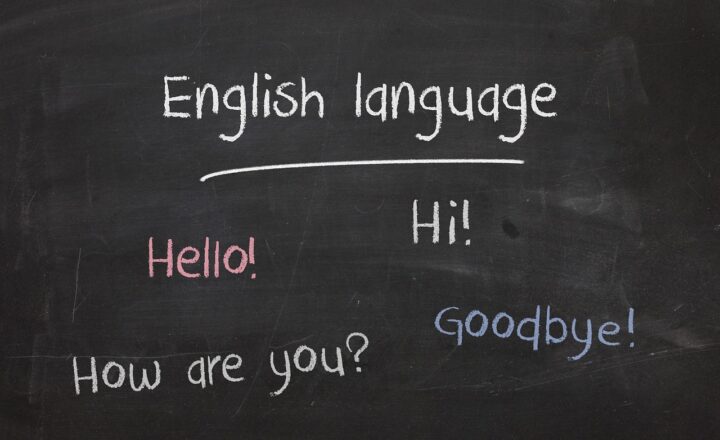The Role of Language in Shaping Political and Social Identity
November 11, 2024

Language is not merely a tool for communication; it embodies the essence of culture, the intricacies of identity, and the frameworks through which societies understand each other. In the realm of politics and society, language plays a pivotal role in shaping identity, influencing thought processes, and constructing narratives that define groups of people. Understanding the interplay between language and identity can illuminate how political and social movements are formed and how they evolve over time.
1. The Nature of Language and Identity
Language is an integral aspect of individual and collective identity. It allows for the expression of personal beliefs, cultural practices, and social affiliations. The language we use often reflects our social status, cultural heritage, and even political beliefs. This aspect of language contributes to a sense of belonging to particular groups, shaping how individuals perceive themselves within the larger context of society.
Consider the example of bilingualism or multilingualism. Individuals who speak multiple languages often navigate different identities depending on the context in which they find themselves. The choice of language can signal belonging to a specific community or adherence to a particular ideology. For instance, the use of indigenous languages revitalizes cultural identities and fosters solidarity among marginalized communities.
2. Language as a Political Tool
Language is also employed as a powerful political tool. Politicians and political movements strategically use language to communicate ideologies and influence public perception. Rhetoric can persuade, mobilize, and demobilize, making it essential for leaders to master the art of language. Terms such as “freedom,” “justice,” and “rights” resonate differently depending on their contextual usage, impacting how political groups are perceived.
For example, during the civil rights movement, leaders like Martin Luther King Jr. utilized evocative language to encapsulate the struggles and aspirations of African Americans, galvanizing support for their cause. His speeches demonstrated how evocative language could encapsulate individual experiences while also voicing collective discontent. This intersection between language and political identity fosters unity and propels movements forward.
3. Language and Social Movements
Social movements often rely on language as a tool for expression and activism. The language used within a movement helps to craft narratives and articulate grievances that resonate with broader audiences. It can also serve to establish in-group and out-group distinctions, critical in mobilizing supporters while alienating opposition.
One notable example is the LGBTQ+ rights movement. The adoption of terms such as “queer” and “non-binary” not only reflects the identity of those within the community but also serves to educate and challenge societal norms around gender and sexuality. This linguistic evolution can lead to a greater acceptance and understanding, thereby strengthening the social identity of its members.
By creating a common language, movements can foster solidarity, empowering individuals as they rally against oppression or injustice. Furthermore, the success of many social movements hinges on the ability to articulate their demands effectively and appealingly, often using social media platforms to disseminate their messages.
4. Language as a Marker of Division
However, language can also serve to divide. The linguistic choices made by groups can establish barriers, emphasizing differences rather than commonalities. In multilingual societies, language policies can marginalize certain communities, leading to tensions and conflict. Political rhetoric often exploits these divisions, reinforcing stereotypes or inciting prejudice against a specific linguistic group.
An illustrative case is the debate over immigration in various countries. Political leaders may utilize language to frame immigrant communities in negative lights, often portraying them as threats to national identity. This framing can prejudice public perceptions and legitimize discriminatory practices.
By understandings the role of language in these contexts, we can begin to address linguistic prejudice and work towards inclusivity. Recognizing the power language holds can facilitate dialogues aimed at bridging divides and fostering unity.
5. The Globalization of Language and Identity
Globalization has transformed linguistic landscapes, leading to the rise of new forms of communication, such as pidgins and creoles, which blend language to reflect cultural exchanges. As cultures and communities intersect, hybrid identities emerge, embodying the complex nature of modern society.
The widespread use of English as a global lingua franca exemplifies the impact of globalization on language and identity. While it creates opportunities for cross-cultural communication, it can simultaneously overshadow local languages and dialects, threatening cultural diversity.
Thus, while language can unite and provide a sense of identity, it can also present challenges regarding cultural survival and authenticity. Efforts to preserve endangered languages are vital to maintaining cultural identities, emphasizing the importance of language preservation alongside globalization.
6. Conclusion
The intricate relationship between language, political, and social identity illustrates the profound impact words can have in shaping our realities. Language is a powerful influencer of identity, a mobilizer of movements, and a determinant of group affiliations. It also has the potential to create divisions, demonstrating the double-edged sword that language represents.
As we delve deeper into the social and political spheres, recognizing the role of language in shaping our identities becomes crucial. By fostering an understanding of this relationship, we can promote inclusivity, challenge prejudice, and advocate for the preservation of linguistic diversity. By doing so, we empower communities to embrace their identity and work towards a more cohesive society.
Language will continue to play a central role in our socio-political narratives. Understanding its power gives us the tools to navigate our increasing global interconnectedness while honoring the diversity that enriches human experience.







